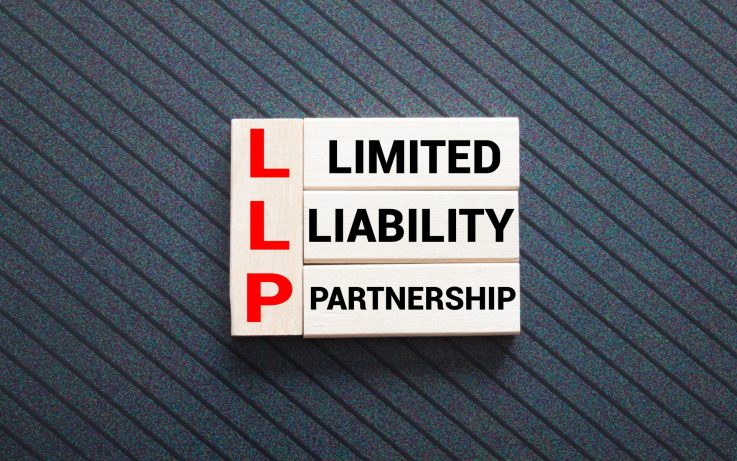Tax Planning in the UK: How to Save on Taxes?

Many articles about the UK taxation system seem to contradict each other. Why is that? What is the remittance basis and how does it help foreigners arriving in the country to save on taxes? What is the purpose of tax planning for non-residents? You can find answers to these and other questions in this article.
Characteristics of the UK Taxation System
There are two main tax rules in the UK:
- All UK tax residents are taxed on all their worldwide income;
- Even non-residents must pay UK tax on income received inside the UK.
Violators are punished so severely that there is no one willing to put their financial well-being and freedom at risk.
While some countries also have strict laws but the repercussions for breaking them are not that severe, in the UK there are allowances and preferential tax treatments. The latter will help you save on tax legally.
This is the main contradiction we come across when we read about UK taxation: first, they talk about how transparent and convent it is, but then, we see progressive income tax, huge penalties for violations and vague descriptions of preferential taxation regimes. It can confuse even an expert! Let’s sort out the terminology first to make sure we are on the same page.
UK Taxation Terminology
UK tax residents are individuals who have economic and family ties to the country and have been here for a long time. They must declare and pay tax on all worldwide income.
Please be careful with two terms – UK resident for tax purposes and UK resident for immigration purposes; the latter is a settled person or UK citizen. You have probably heard about UK celebrities who have British passports but pay taxes elsewhere.
The tax year for UK individuals starts on 6 April and ends on 5 April of the following year.
Progressive income tax rates refer to UK tax bands where the rate increases as the taxable amount goes up. Please see the table below showing the tax bands in the UK and Northern Ireland for 2021/22. In Scotland and Wales, the rates and bands are slightly different.
| Taxable income |
Tax rate |
|
Up to £12,570 |
0% |
|
£12,571 to £50,270 |
20% |
|
£50,271 to £150,000* |
40% |
|
Over £150,000 |
45% |
* The £12,570 personal allowance will be reduced by £1 for every £2 earned above £100,000.
If you want to find out how your UK income tax is charged, you should calculate all your income for a tax year and apply the relevant percentages.
Let’s say you have earned £170,000:
- The non-taxable personal allowance of £12,750 is not applicable because the income exceeds £125,140;
- £170,000 – £150,00 = £20,000 is taxed at 45%;
- £150,000 – £37,700 = £112,300 is taxed at 40%;
- £37,700 is taxed at 20%.
Therefore, you will need to pay the HMRC:
£20,000 x 45% + £112,300 x 40% + £37700 x 20% = £61,460.
Experts that specialise in tax planning talk about measures that help entrepreneurs moving to the UK reduce their tax burden. All measures are legal since they are based on the current UK tax laws.
To get the most out of tax planning, you should prepare for it before you move to the UK and talk to an experienced advisor dealing with such cases.
Why Plan Taxes Before Moving to the UK?
According to British laws, all your money received before you become a tax resident is considered clean capital and is not taxed. Therefore, it is important to restructure your assets in advance, for example, sell the property you don’t need and keep the money in a separate bank account.
If you sell your assets as a tax resident, you will be taxed on the difference between the purchase price and the sale price. Any bank interest, business proceeds, royalties, etc. are also subject to tax. Therefore, our advice is, “Do not mix up foreign income with clean capital!”
It is recommended to open 3 separate bank accounts before moving to the UK:
- A clean capital account;
- A capital gains account, for money from the sale of assets;
- An income account, for bank interest, royalties, income from your business, etc.
Another “painful” UK tax is the inheritance tax; it stands at 40% for all heirs except spouses. That is why some entrepreneurs transfer a part of their estate to future heirs before they become UK tax residents.
When Do I Become a UK Tax Resident?
If you have spent more than 45 days in the UK, have already bought or rented a home, got a job, or started a business, it is important to know your status.
There is a Statutory Residence Test on the government website or a UK Tax Residence Test offered by some law firms specialising in UK taxation to determine a tax status using a calendar and calculator.
For tax planning purposes, knowing whether you are a UK tax resident is not enough; the date you become a UK tax resident is equally important. With the help of competent advisors, you will avoid any unpleasant surprises related to the UK tax residency from the start.
What Tax Planning Tools are Available to UK Tax Residents?
Tax experts tend to use the following tools to reduce the client’s tax burden:
- Double taxation treaties;
- Remittance basis;
- Becoming non-resident.
We will cover each of the above tools in detail.
Double taxation treaties
Fortunately, the UK has negotiated treaties with more than 100 countries; they are beneficial for new tax residents. The idea behind double taxation treaties is for an individual, who is a tax resident in two countries, to choose the country in which they will pay tax according to the treaty in force and their life circumstances. If an individual is a tax resident in one country, they must pay taxes in the country of income but can apply for a double taxation relief in the country of tax residence.
Remittance basis
It is a preferential tax treatment available to UK non-domiciled tax residents. By claiming remittance, tax residents of foreign origin pay tax only on income received in the UK or remitted to the country. Foreign income does not have to be declared.
Domicile is a common law term used in some Western countries to identify a country where an individual belongs either by birth or by choice. For example, individuals born in the UK have a UK domicile of origin at birth based on their parents’ domicile. It is possible to acquire a domicile of choice by renouncing your domicile by birth in favour of the British one.
However, since domicile imposes several tax obligations, it can hardly become a voluntary choice. That is why the term “deemed domicile” was introduced. If you have been a tax resident for at least 15 out of the 20 tax years in the UK, you are a deemed domicile. You are taxed on all your worldwide income and your worldwide estate is subject to an inheritance tax of 40%.
If you are not yet domiciled in the country of residence, i.e. you are a non-domicile, you can use preferential tax treatment. Those who apply for the remittance basis know that this tool has its pros and cons:
- Each year, when preparing your tax return, you can decide whether to claim it or not;
- Contrary to a popular belief, the remittance basis is not provided for free even in the first years of using it. All your UK income and money remitted to the UK will be subject to tax without a tax-free personal allowance of £12,570. Let us give you an example. If you earn your money in the UK, applying the remittance basis for the 2021/22 tax year would have cost you £2,514 (£12,570 x 20%) to £5,656 (£12,570*45%) depending on your income;
- The annual remittance charge is £30,000 if you have been a UK resident for at least 7 of the previous 9 tax years and £60,000 if you have been a UK resident for at least 12 of the previous 14 tax years.
It is all pure maths. If your savings are higher than your losses, the remittance is worth it.
Are There UK Residential Property Taxes?
There is no UK property tax for individuals per se. However, it is still not cheap to own property in the UK. How come?
Transactions relating to the purchase, sale, or transfer of immovable property in the United Kingdom are charged twice:
- Stamp duty (for buyers);
- Capital gains tax (for sellers).
There are two additional annual taxes, a council tax and a ground rent. The council tax is paid to a local council by the owner or tenants. The money goes to maintaining the area surrounding the property. The amount of council tax depends on the location and type of property. The ground rent is paid annually to the freeholder if you bought the property without land.
How to Optimise Property Taxes in the UK?
We are limited by the scope of this article, so we’ll just touch upon general principles. You can research online how stamp duty is calculated when you buy a property and how capital gains tax is calculated when you sell it.
To calculate stamp duty, you need to know:
- Where you are resident;
- Purchase price of the property;
- Whether you are a first-time buyer.
If you want to calculate capital gains tax, you should know the purchase value and the untaxed allowance, which was £11,000 in 2020/2021.
You do not pay capital gains tax if you:
- Sell a property that is less than 5,000 square metres and it’s your only home;
- Gift a property to your spouse or unmarried/civil partner.
Is It True that Gifts left after a Deceased Person Are Taxed in the UK?
Yes, if you die within seven years of making a gift, it will be subject to inheritance tax. The amount of tax due after your death depends on when you gave it. Gifts given in the 3 years before your death are taxed at 40%. Gifts made earlier will reduce the tax rate by 20% for each additional year.
How to Stop Being a UK Tax Resident?
If you don’t want to be a deemed domicile, you can lose it. You should leave the UK for at least 6 accounting periods. Later, if you decide to return, your UK “domicile clock” will be reset.
If you are not domiciled yet but do not want to be a UK tax resident either, you don’t have to leave the UK for 6 years. Periods spent outside the UK, which exceed 6 months, do not automatically strip you of the unfavourable tax status. You will still have enough family and economic ties to the UK so you won’t be able to stay in the country even for 46 days a year.
It is also important how many years you have been a tax resident before you decide to lose the status. If it is 4 years or more, you will be considered a “temporary non-resident” for 5 years after you leave the UK. In addition, if you come back to the country during this period, you will be subject to special rules, for example, some of your income earned during the period of absence will be subject to UK tax. Temporary non-residents are liable to capital gains tax and dividend tax for an accounting period if they have received income from the sale of property or other assets outside the UK, or if they have been paid dividends as a shareholder in a foreign company.
Expert tax advisors can help you find out exactly what actions will lead to you losing the UK tax resident status and can calculate when and how much tax you will pay when you come back to the UK.
If you are just getting ready to move to the UK and plan to stay here for a while, tax planning is a must. You will also need it once in the UK, especially if you have foreign income. It is possible to reduce the tax burden in the UK by using legal tax optimisation tools.







